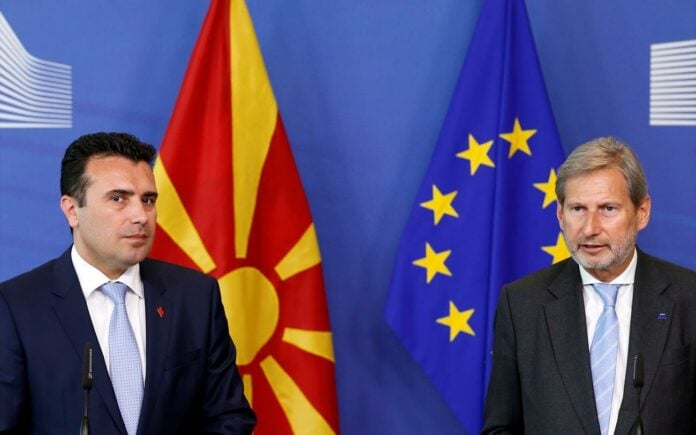A change in leadership in the neighboring former Yugoslav Republic of Macedonia (fYRoM) this month has apparently rekindled interest in that country’s Euro-Atlantic prospects, and inevitably, in solving the nearly three decades-long “name dispute” between Athens and Skopje.
The thorny dispute over the one-time Yugoslav republic’s constitutional name has severely plagued relations between the two neighbors since the very early 1990s, with Athens’ position being that the stand-alone name “Macedonia” has irredentist connotations and is historically tenuous. Greece’s biggest province is Macedonia, in northern Greece, which more closely approximates with historical and geographical Macedonia.
Speaking during a press conference in Brussels on Monday, new fYRoM Prime Minister Zoran Zaev said Greece is a friend his country, while continuing efforts to build good-neighborly relations with Athens will create a “more positive ambiance” for talks to overcome the “name issue”.
Zaev made the statements with EU Commissioner for enlargement Johannes Hahn by his side.
The latter was quoted as saying that it’s important to find a solution over the dispute.
“If there is a mutual trust and if good relations are built, we, as a European Commission, including me, I will mediate personally,” he said at a joint press conference.
Hahn also said the formation of a new government in Skopje was a positive development.
The re-emergence of fYRoM’s NATO and EU membership prospects was highlighted on Monday with a Financial Times article touching on possibility of the country being admitted to the Alliance under its provisional name. Such a prospect was shot down in 2008 when the then Greek government vetoed Skopje’s membership.
FT quoted new fYRoM Foreign Minister Nikola Dimitrov as saying Skopje will examine new proposals for a provisional name formula in order to overcome Greek objections at NATO.
Back in Athens, a main opposition New Democracy (ND) party spokesman said the “name dispute” must be solved in a “mutually acceptable fashion”.
“Until such a solution is achieved, there is no issue of changing the Bucharest policy, which led to a unanimous NATO decision,” ND spokesman Giorgos Koumoutsakos said, in reference to the 2008 NATO summit in the Romanian capital.














